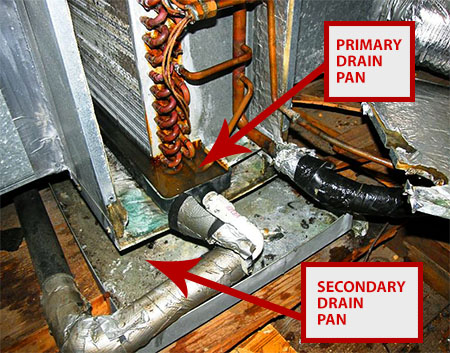Get the latest information about Why Does My Ac Unit Have Ice On It in this article, hopefully providing better understanding for you.

Ice on Your AC Unit: A Sign of Trouble?
As temperatures soar, your air conditioner (AC) becomes your lifeline, providing respite from the scorching heat. However, if you notice ice forming on your AC unit, it’s a sign of an underlying issue that needs prompt attention.
Ice on an AC unit can severely impede its performance and cause long-term damage. It’s crucial to understand the causes and take timely action to resolve the problem.
Understanding AC Unit Icing
An AC unit functions on the principle of evaporating refrigerant inside a cold coil, which draws heat from the air flowing over it. The refrigerant then condenses in a hot coil, releasing the heat outside the building.
When ice forms on the AC unit, it indicates that the refrigerant is not evaporating properly, causing the cold coil to freeze. This can occur due to several reasons, including:
- Restricted airflow: Blocked air filters, dirty coils, or inadequate ductwork can restrict airflow over the cold coil, hindering heat transfer and leading to icing.
- Low refrigerant levels: Insufficient refrigerant can prevent the system from effectively absorbing heat, resulting in freezing of the cold coil.
- Faulty expansion valve: The expansion valve controls the flow of refrigerant into the coil. A malfunctioning valve can allow excess refrigerant to flood the coil, causing ice formation.
- Dirty condenser coils: Condenser coils located outside the unit can become clogged with dirt, dust, and debris, obstructing heat release and causing the system to work harder, leading to icing.
Tips to Prevent and Address AC Unit Icing
To avoid AC unit icing and ensure optimal performance, follow these expert tips:
- Regular maintenance: Schedule regular maintenance, including air filter changes, coil cleaning, and refrigerant level checks, to keep your AC unit in good working order.
- Unrestricted airflow: Ensure unobstructed airflow by regularly cleaning air filters, removing any obstructions from air vents, and addressing ductwork issues.
- Professional assistance: If you suspect any serious issues, such as low refrigerant levels or a faulty expansion valve, promptly contact a qualified HVAC technician for proper diagnosis and repairs.
FAQs on AC Unit Icing
Q: Why does ice build up on my AC unit?
A: AC unit icing can occur due to restricted airflow, low refrigerant levels, a faulty expansion valve, or dirty condenser coils.
Q: Is it dangerous to operate an AC unit with ice on it?
A: Continued operation of an iced-up AC unit can lead to reduced performance, damage to components, and premature failure.
Q: How can I prevent AC unit icing?
A: Regular maintenance, unrestricted airflow, and professional assistance are key to preventing AC unit icing.
Conclusion
Ice formation on an AC unit is a clear indication of an underlying issue. Prompt attention is essential to address the root cause, resolve the problem, and restore optimal performance. By adhering to the tips and FAQs mentioned above, you can prevent AC unit icing and ensure a comfortable, cool indoor environment during those sweltering summer months.
Do you have any further questions about AC unit icing? Feel free to leave a comment below, and I’ll be happy to assist you.

Image: smartacsolutions.com
We express our gratitude for your visit to our site and for taking the time to read Why Does My Ac Unit Have Ice On It. We hope this article is beneficial for you.